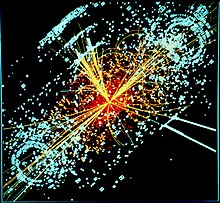

|
Everything we do, from scratching an itch to taking up a career, derives from a feeling that the way things are is somehow lacking. Buddha taught that this is an illusion, and counseled us to attack the dissatisfaction within ourselves, rather than seeking to cure its source in the outside world. There is wisdom and truth in this insight. And yet most of us, given the choice to erase our dissatisfaction, whether with drugs or with meditation practice, would choose engagement over bliss.
We are not satisfied with satisfaction. This is the central paradox at
the heart and foundation of Utilitarian philosophy, the positivist
individualism upon which modern societies are built. Our existence can only be understood in the context of a human community, which endows our actions with meaning. What we seek from spiritual practice is not a benumbed or even delighted indifference. Rather, we seek a transparency and a harmony in our connection that frees us to act both powerfully and joyfully. — Josh Mitteldorf |
1 August 2010
|
|||||||||||||||||||||||||
|
May political conflict yield to human reason An eloquent, ingenuous plea for an end to hostilities, which we may admire for its rightly-placed faith in the goodness of human nature, even if the young author neglects the shameful role of governments in obstructing peace and rallying the populace to nationalist bigotry: England to Ireland (1888) Spouse whom my sword in the olden time won me,
Lovers whom tragical sin hath made equal,
Hate and mistrust are the children of blindness,—
Then should the ominous night-bird of Error,
Thou, like a flame when the stormy winds fan it, — William Watson, born this day in 1858 |
2 August 2010
|
|||||||||||||||||||||||||
|
Never too late Maggie Kuhn turned the stereotypes of old ladies to political advantage, using the hollow deference that is often afforded to old people in order to gain access to politicians, and confronting the halls of power in a way that others might not get away with. Her career as a Gray Panther began at age 65, and continued until her death (in the saddle) at 90. Although age and sex discrimination were her signature issues, she also advocated powerfully for peace and for gay rights. It is a tribute to her charisma that she had no trouble attracting high school and college students to the Gray Panthers. “Old age is an excellent time for outrage. My goal is to say or do at
least one outrageous thing every week.” “Stand before the people you fear and speak your mind -- even if your voice shakes.” |
3 August 2010
|
|||||||||||||||||||||||||
|
500 years of fun Here’s a song that has made people laugh for 500 years. How much was common between their culture and everyday concerns and our own? Is there any contemporary music that a 16th Century French peasant would find appealing? Is there anything that I can create that will be valued by my progeny 500 years hence? He is good, and he is handsome, my husband. He doesn’t drink or gamble. He gives me pleasure in bed, and best of all, he doesn’t beat me. Listen to
the King’s Singers performing ‘Il est bel et bon’, |
4 August 2010
|
|||||||||||||||||||||||||
|
Inuit thinking Songs are thoughts, sung out with the breath when people are moved by great forces and ordinary speech no longer suffices. Man is moved just like the ice floe sailing here and there out in the current. His thoughts are driven by a flowing force when he feels joy, when he feels fear, when he feels sorrow. Thoughts can wash over him like a flood, making his breath come in gasps and his heart throb. Something, like an abatement in the weather, will keep him thawed up. And then it will happen that we, who always think we are small, will feel still smaller. And we will fear to use words. But it will happen that the words we need will come of themselves. When the words we want to use shoot up of themselves—we get a new song. —
Orpingalik, Netsilik Eskimo |
5 August 2010
|
|||||||||||||||||||||||||
|
The Amateur Spirit Artists and writers, I believe, have a special role, creating new questions for which they offer experimental answers. We are tested, enriched, and fulfilled by the varieties of experience. And as the years pass there are increasing advantages to being a questioner. Answers can trouble us by their inconsistency, but there is no such problem with questions... I see democracy, government by amateurs, as a way of confessing the limits of our knowledge. The amateur is not afraid to do something for the first time. With our amenable constitutional congressional government we avoid the tyranny of anybody’s pretense to know all the right answers. And se we need not suffer the paralysis of indecision because we don’t know it all... Being born a Jew makes it easier to be a questioner. For the Jewish God remains a mystery whose very name we cannot confidently utter. And being a Jew in a Christian society makes me wary of easy respectable answers to the deepest questions of theology and morals. It also makes me wary of those who would mold Judaism itself into an imprisoning chauvinism or orthodoxy. Probably no one of us has the True Religion. But all of us together if we are allowed to be free are discovering ways of conversing about the great mysteries. from an essay by Daniel Boorstin If our mission is an endless search, how can we fail? |
6 August 2010
|
|||||||||||||||||||||||||
|
A Morning Offering
|
7 August 2010
|
|||||||||||||||||||||||||
|
The Paradox of Hope I live in hopeful anticipation of the next thing. I’ve made a virtue of enduring work, exercise, meditation, and patient listening, and stroke myself to reward perseverance. But I find that even when I’m doing something for fun, frequently I’m consoling myself all the while with a promise of whatever comes next. Hope keeps me upbeat and optimistic. This is a lifelong aspect of my temperament, as well as a cultured habit of the mind. I promise myself that I am working toward something better, a reward in the next hour, something transcendental in coming years. It gets me out of bed in the morning and compensates me for the looming specter of my mortality. I slip from hope into waiting. The present is never satisfactory. I am living for something else. As the years go by, I begin to suspect that ‘something else’ is an illusion. And yet, it is the hope itself that infuses meaning in each moment, gives structure to my activity, a sense of solidity and purpose that lifts me from the void. Hope, like purpose, is an illusion, in the sense that there really is not something better just around the corner. The paradox is that the illusion makes the present more tolerable, more interesting, perhaps even fun. Just as ‘playing to win’ is more engaging than just ‘playing around’, purposeful activity works for me, even if I know underneath that the purpose is insubstantial. The paradox remains unresolved. I don’t know how to reconcile my enjoyment of purpose with my cognizance that, ultimately, there is no purpose. Children spend a good deal of their lives in boring classrooms, or waiting to do what they want until it fits into an adult’s schedule. Perhaps it was in elementary classrooms that I first learned to postpone joy. But in the present, I have to think that the habit of consoling myself with expectation of the future is not the way I want to live. How to change? The first step is awareness of the pattern. Perhaps this alone would be sufficient to induce change eventually, but I hope to speed the process along with the mantra, ‘This is as good as it gets,’ repeated whenever I notice that I’m consoling myself with anticipation. If all goes well, then pretty soon, I won’t be living in the future any more. — Josh Mitteldorf |
8 August 2010
photo by |
|||||||||||||||||||||||||
|
Regenerative medicine is coming Every cell in a body shares the same genes. Differences in function are controlled according to gene expression: some genes are translated into proteins, while others (most) are silent. Stem cells are special cells that replenish the body’s supply of cells (particularly skin and blood cells) which wear out. But the body’s longest-lived cells (heart muscles and nerve cells) can also be replenished from stem cells as we age. There is great hope in the gerontology community that with stem cells, we will be able to rejuvenate tissues of the body that become damaged with age. Several research groups around the world are working on reprogramming any old cell from the body to turn it back into a stem cell, and their work is close to fruition. Last week, a group from Gladstone Institute announced that it has achieved a shortcut in this process: they are able to turn connective tissue in the heart directly into new heart muscles, without going back to the ‘pluripotent’ state of stem cells. |
9 August 2010
|
|||||||||||||||||||||||||
|
‘Love thy neighbor as thyself’ What the hell is that supposed to mean? Is it merely ‘Act lovingly toward everyone, whether you feel like it or not’? That’s at least something that one can do on command, as an act of will. Or is it a command about how to feel, regardless of how one behaves? That’s what the words imply, and in this interpretation, we may understand how love as a cultured habit becomes a temperament, and contributes to personal happiness that does not depend upon circumstances. But is it possible to feel love by an act of will? 250 years ago, Soren Kierkegaard grappled with these questions, and resolves the paradox by inserting God into the equation: ‘Worldly wisdom thinks that love is a relationship between man and man. Christianity teaches that love is a relationship between: man-God-man, that is, that God is the middle term.’ Does this settle anything? Read Simon Critchley in his NYTimes blog Kierkegaard was called “the Fork” as a child
because of his uncanny ability to find people’s weaknesses and stick it
to them. As he matured, he learned to focus this cruel intolerance
on himself. |
10 August 2010
|
|||||||||||||||||||||||||
|
Every work of art belongs to a universal form Great works of art are the visual forms that attain in us the
certainty of timeless consonance. The confirmation that certain forms,
in the particular aspect that their creators have given them, return
again and again throughout the history of art and, in the filigree of
individual genius, constitute none the less facets of a universal genius
is something deeply unsettling. What congruence links a Klaas, a
Raphael, a Rubens and a Hopper? Despite the diversity of subject
matter supports and techniques, despite the insignificance and ephemeral
nature of lives always doomed to belong to one era and one culture
alone, and despite the singular nature of a gaze that can only ever see
what its constitution will allow, and that is tainted by the poverty of
its individuality, the genius of great artists penetrates to the heart
of the mystery and exhumes under various guises the same sublime form
that we seek in all artistic production.. — Muriel Barbery, The Elegance of the Hedgehog Les grandes oeuvres sont des formes visuelles qui atteignent en nous
à la certitude d’une intemporelle adéquation. L’évidence que certaines
formes, sous l’aspect particulier que leur donnent leur créateurs,
traversent l’histoire de l’Art et, en filigrane du génie individuel,
constituent autant de facettes du génie universel, a quelque chose de
profondément troublant. Quelle congruence entre un Claesz, un Raphaël,
un Rubbens ou un Hopper? En dépit de la diversité des sujets, des
supports et des techniques, en dépit de l’insignifiance et de l’éphèmère
d’existences toujours vouées à n’être qu’un seul temps et d’une seule
culture, en dépit encore de l’unicité de tout regard, qui ne voit jamais
que ce que sa constitution lui permet et souffre de la pauvreté de son
individualité, le génie des grands peintres a percé jusqu’au coeur du
mystère et a exhumé, sous diverses apparences, la même forme sublime que
nous cherchons en toute production artistique. |
11 August 2010
|
|||||||||||||||||||||||||
|
Beyond
|
12 August 2010
|
|||||||||||||||||||||||||
|
On the Possibility of Experiencing Miracle If miracle really is the favorite child of faith, then, at least for some time, faith has been seriously neglecting its parental duties. For at least a century, the child has been only a source of great embarrassment for the wet nurse dispatched by its parents, theology...it is difficult for us to believe that...it was only a while ago when miracle was not an embarrassment, but instead, theology’s strongest and surest companion. What has happened in the meantime? ...the moment of that reversal...the moment philosophy exploded in its hands, where philosophy thought it had firmly grasped it, the fundamental concept of the knowable All. At this moment, philosophy had felt its ancient throne falter; the dynasty of over two thousand years...seemed to die out brilliantly and suddenly... Natural events that are subject to laws, this basic dogma for us
today, was just as obvious for the ancients...The miraculous character
of miracle rested on a completely different context: not on its
divergence as regards the course of nature predetermined by laws, but on
the fact that it was predicted. Miracle is essentially ‘sign’.
This is from Fritz Rosenzweig’s bible of Jewish mysticism, The Star of Redemption (1919). Rosenzweig goes on in his passionate and colorful prose, but for those who prefer a more succinct exposition, the point is this: if miracle is defined as exceptional events in violation of natural law, then we have today as rich a trove of miracles as had the Ancients, but these are denied by a new kind of theology that says They Are All Errors, and if we carefully examined the circumstances of each reported miracle, we would realize that someone was deceived, or deluded, or hallucinating, and that natural law was not indeed violated. It is certainly true that many claims of miracle are fraudulent, while others are mistaken. Some are dismissed as not worthy of credence, which might have pointed to new understandings of physical law. But to maintain that all reports of physically exceptional events are errors or frauds—this is a claim outside science, indeed outside rationality. It is the faith that denies faith, and it is the disease of the philosophy of our time, correctly if circuitously diagnosed by Rosenzweig. |
13 August 2010
|
|||||||||||||||||||||||||
|
Osho on Intimacy Intimacy brings you close to a stranger. You have to drop all your defenses; only then is intimacy possible. We are all hiding a thousand and one things, not only from others but from ourselves... Only a person of introspection can allow intimacy to happen. He has nothing to hide. He has shed the fear that others may know him — all of him. He has only a silence and a loving heart. — from Intimacy by Osho |
14 August 2010 |
|||||||||||||||||||||||||
|
‘Adopt a perspective outside time.’ Commentary: I know, I know! It’s the opposite of Be Here Now. It’s not what Eckhart Tolle or Ram Dass or Pema Chodron might say. The opposite of a profound truth may be another profound truth.* Try it! — Precept and commentary by Josh Mitteldorf |
15 August 2010
|
|||||||||||||||||||||||||
|
Where does mass come from? It’s an embarrassment to theoretical physics that, although there are some quantities that can be calculated with great precision, the theory cannot account for why most elementary particles have mass. Worse, some theory predicts zero mass, while other calculations come out to infinity. Since Einstein, energy is mass. So particles of light have a mass due to their energy. Other particles have a ‘rest mass’ in addition to the mass that corresponds to energy of motion. It is the rest mass that is not understood. Since 1964, the favorite resolution of this dilemma is the ‘Higgs Field’, which supplies a hypothetical mechanism which accounts for mass (only qualitatively - masses of individual particles still cannot be calculated). The Higgs Field is associated with a particle of enormous mass, compared to what could be created in 1960’s particle accelerators. So there was a reason why the Higgs Boson had not been observed, and for more than 40 years, physicists went about developing more and more detailed theories on the premise that the Higgs Boson exists, even though they had never seen one. But through the 1990s, the two other heavy particles predicted by theory (W and Z) were discovered, more or less where they ought to be. The Higgs failed to show up. Now, finally the accelerator at CERN has plenty of energy to create the long-postulated particle. There are many schools of thought about fundamental physics, but from every corner, those who know enough to pronounce upon such things are confident that the Higgs Boson will be observed. The CERN accelerator has been up and running for almost a year, and no Higgs has appeared. Within the next several months, it will either turn up or the result must be counted as negative. We don’t even have ideas what physics should look like without it. |
16 August 2010
|
|||||||||||||||||||||||||
|
I SLEPT and dreamt that life was joy. I AWOKE and saw that life was service. I ACTED and behold, service was joy! — Rabindranath Tagore |
17 August 2010
|
|||||||||||||||||||||||||
|
It is recorded in the tradition of the Shaykhs that Jami once said, when asked about hypocrisy and honesty: How wonderful is honesty and how strange hypocrisy! I wandered to Mecca and to Baghdad, and I made a trial of the behavior of men. When I asked them to be honest, they always treated me with respect, because they had been taught that good men always speak thus, and they had learned that they must have their eyes downcast when people speak of honesty. When I told them to shun hypocrisy, they all agreed with me. But they did not know that when I said ‘truth’, I knew that they did not know what truth was, and that therefore both they and I were then being hypocrites. They did not know that when I told them not to be hypocrites they were being hypocrites in not asking me the method. They did not know that I was being a hypocrite in merely saying, ‘Do not be hypocrites’, because words do not convey the message by themselves. They respected me, therefore, when I was acting hypocritically. They had been taught to do this. They respected themselves while they were thinking hypocritically; for it is hypocrisy to think that one is being improved simply by thinking that it is bad to be a hypocrite. The Path (of Tasuwwuf) leads beyond: to the practice and the understanding where there can be no hypocrisy, where honesty is there and not something which is man’s aim. — Maulana Jami, born this day in 1492 |
18 August 2010
|
|||||||||||||||||||||||||
|
There is a better way Anyone who has taken the trouble to read the studies knows that the death penalty does not deter crime. But the full truth about crime and punishment is far more radical and more hopeful. Incarceration is not a ‘necessary evil’. There are far better ways to assure compliance with the law. Mikhail Lyubansky writes: There are many restorative justice systems. The one I’ve been studying is Restorative Circles (RC), a system developed by Dominic Barter in the shanty towns of urban Brazil and now spreading across the world as a means of promoting and facilitating social justice, group cohesion, resilient relationships and personal healing. Restorative Circles provide a way for individuals and communities to handle conflicts, including racial conflicts, compassionately rather than punitively, as well as to heal and learn from these conflicts. These days when I say I want justice, this is the kind of justice system I have in mind -- a system that values everyone's needs and is designed to address those needs without either blame or compromise. It’s not too much to expect our institutions to model the behaviors that they wish to elicit from citizens. Read full article at OpEdNews. |
19 August 2010
|
|||||||||||||||||||||||||
|
One Kiss A man was given one kiss, one |
20 August 2010
|
|||||||||||||||||||||||||
|
The 21st century will be the century of the common people Iceland is a small, technically-advanced, energy self-sufficient, and very civilized country where a whimsical socialist like Birgitta Jόnsdόttir can find a seat in Parliament. After Iceland was shaken by corruption and scandal, Jόnsdόttir seized the opportunity to push through the world’s broadest legislation on transparency and freedom of information. Iceland is exporting truth. I am sure we can get sustainable change in our world if we use the concept of globalization in our advantage to push for changes in a joint effort locally and globally. Iceland is in many ways an ideal place for experimental work in this
regard, being a country with only 316.000 souls living there yet our
society is among the most developed in the world. With a tiny
bureaucratic body compared to similar societies, we can move radical
change much quicker through our system. |
21 August 2010
|
|||||||||||||||||||||||||
|
...but that doesn’t mean it’s true We proceed on the assumption that scientific questions have scientific answers, that the Universe is knowable in all its aspects, that rational inquiry will continue to yield information and understanding. Just because a problem seems difficult to us does not mean that it is fundamentally intractable. This is exactly right. This mindset maximizes our chance of success in deepening our understanding and appreciation of nature. Indeed, without it, progress might be well nigh impossible. Still, in the back of our mind we hold the possibility that deep aspects of Nature may forever elude us. The Uncertainty Principle of Heisenberg and the Incompleteness Theorem of Gödel are monuments of Twentieth Century thought, precisely because they point to fundamental limits to human understanding. To ancient peoples, the eclipses of sun and moon were sources of mystical wonder. Today, we marvel that fundamental scales and constants of the Universe seem so finely-tuned to allow interesting phenomena, including life, to emerge. Our mysticism is always relative to the knowledge we possess. We don’t expect that someday our knowledge will be complete, and mysticism outmoded. But nor do we give up the search for scientific answers. — Josh Mitteldorf |
22 August 2010
|
|||||||||||||||||||||||||
|
The rich have more money but the poor are rich in heart Being poor is inconvenient, painful, boring...but in some surprising respects, poor people are better connected, more empathetic, and have comparatively more of the attitudes and social relationships that support a sense of wellbeing. PhysOrg article summarizing the work of Paul Piff at UCBerkeley Lower income people might be more compassionate because they’re more closely rooted to and dependent on others, therefore more empathetic. It’s also thought the more money the lower-earning people make in their lifetime and the higher their status becomes. As a result of it, the ability to connect with others’ point-of-view disappears, including the low-income population they were once ties to. |
23 August 2010
|
|||||||||||||||||||||||||
|
The Melting Pot IInterracial marriage and interracial adoption are two of the most promising and uplifting long-term trends in the world today. So much of demagoguery and war is built on racist hatred and xenophobia. When the ‘other’ shares a bedroom with you, it is no longer possible to demonize him. There is also a biological benefit from cross-breeding, described as heterosis or ‘hybrid vigor’.
Washington Post article on interracial marriage American Statistics from Wikipedia article
|
24 August 2010
|
|||||||||||||||||||||||||
|
Downfall of the selfish gene In this week’s Nature is an article explaining the weaknesses of the dominant evolutionary paradigm of the last 50 years, Inclusive Fitness Theory, aka The Selfish Gene. The article is likely to be influential because (1) it appears in Nature and (2) its authors include Martin Nowak (the foremost mathematical evolutionist of our time) and E.O. Wilson, a giant in the field of social insects, where Selfish Gene theory was supposed to have its best application. The alternative to Selfish Gene theory is often called Group Selection, a term which has become the center of great controversy and misunderstanding. Brilliantly, the authors of this week’s paper counterpose the Selfish Gene against what they call ‘Standard Evolutionary Theory’, turning the tables and placing the burden of proof back where it belongs. Why should we care? It’s not just because Selfish Gene theory
has distorted the field of Evolutionary Biology, necessitating contorted
explanations for such universal phenomena as sex, aging, and
cooperation. In a much larger context, the Selfish Gene is a proxy
for the Invisible Hand of Adam Smith, the economics of pure capitalism,
and Social Darwinism. These ideas have been used to justify the
dominance of the few over the many for 250 years, and it’s high time to
expose them as propaganda, not science. |
25 August 2010 |
|||||||||||||||||||||||||
|
The Great Way is not difficult When this deep meaning of things is not understood
The Way is perfect like vast space
When you try to stop activity to achieve passivity “Not two, not two!” Emptiness here, emptiness there, To live in this realization is to be without anxiety about
non-perfection. — Jiazhe
Seng-can, Third Chinese Patriarch of Zen |
26 August 2010
|
|||||||||||||||||||||||||
|
‘Suppose you could choose either to maximize human rationality or to maximize human happiness. For most of us, even for the most strident advocates of reason and critical thinking, I suspect the choice would be happiness or well-being. Sam Harris, a well-known advocate of reason has suggested that maximizing human well-being ought to be the very foundation of our moral system. What would be the value of reason if it didn’t contribute to well-being? ‘If
we are to be rational and scientific, we ought to appreciate the value
of diversity and the role of evolution in shaping our minds. We are
predisposed to delusional thinking because our brains have evolved this
way; it was evolutionarily advantageous. It is human nature to be
somewhat delusional. To expect people to be perfectly rational is to
ask us to defy our own nature. It isn’t reasonable.’ I’ll take the awe of understanding over the awe of ignorance any day.’ —Douglas Adams |
27 August 2010
|
|||||||||||||||||||||||||
|
‘If I treat you as though you are what you are capable of becoming, I help you become that.’ — Scientist and poet, Johann Wolfgang von Goethe was born this day in 1749 |
28 August 2010
|
|||||||||||||||||||||||||
|
This is the moment for which all your life has been a preparation. Shed fear. Sprout wings. Float out of arbitrary time. — Josh Mitteldorf Wind is blowing in your hair |
29 August 2010
|
|||||||||||||||||||||||||
|
Enough one-liners for a year of daily inspirations I believe that ignorance is the root of all evil. And that no one
knows the truth. What stuns me most about contemporary politics is not even that the
system has been so badly corrupted by money. It is that so few people
get the connection between their lives and what the bozos do in
Washington and our state capitols. Politics is not a picture on a wall
or a television sitcom that you can decide you don’t much care for. There are two kinds of humor. One kind that makes us chuckle about
our foibles and our shared humanity—like what Garrison Keillor does. The
other kind holds people up to public contempt and ridicule—that’s what I
do. Satire is traditionally the weapon of the powerless against the
powerful. I only aim at the powerful. When satire is aimed at the
powerless, it is not only cruel—it’s vulgar. We are the people who run this country. We are the deciders. And
every single day, every single one of us needs to step outside and take
some action to help stop this war. Raise hell. Think of something to
make the ridiculous look ridiculous. Make our troops know we’re for them
and trying to get them out of there. Hit the streets to protest Bush’s
proposed surge. If you can, go to the peace march in Washington on Jan.
27. We need people in the streets, banging pots and pans and demanding,
“Stop it, now!” |
30 August 2010 |
|||||||||||||||||||||||||
|
Un-developed human faculties It’s clear that developing our sensitivities can enhance them enormously. Think of a musician’s sense of pitch, or an actor’s memory, or the ability we all have to distinguish tiny variations in sound as they happen to affect meaning in speech. An article in this weeks NYTimes Magazine by Guy Deutscher gives many examples of the ways in which the language we speak trains us to perceive some things more finely than others. But are there faculties that we have lost altogether from disuse? In particular, do we have directional sensors that we ignore because in modern society we don’t use them? Can primitive peoples who have developed these faculties navigate intuitively like the homing pigeon or the salmon? Is this sense based on magnetic sensors in our nervous system that orient to the earth’s magnetic field? ‘One report relates how a speaker of Tzeltal from southern Mexico was blindfolded and spun around more than 20 times in a darkened house. Still blindfolded and dizzy, he pointed without hesitation at the geographic directions.’ The most compelling examples that Deutscher discusses have to do with certain languages that don’t use ‘forward’, ‘backward’, ‘left’ and ‘right’ to give everyday directions, but instead code the same directions as ‘north’, ‘south’, ‘east’, and ‘west’. The former directions are relative to our bodies, and they change as we turn about. They are easy for the listener to follow, but require of the speaker that he put himself in the listener’s frame of reference. The latter are objective, and require no translation, but they require a person to know at all times which way is north. They don’t look at the sun and pause for a moment of calculation before they say, “There’s an ant just north of your foot.” They simply feel where north, south, west and east are, just as people with perfect pitch feel what each note is without having to calculate intervals. |
31 August 2010
|
























